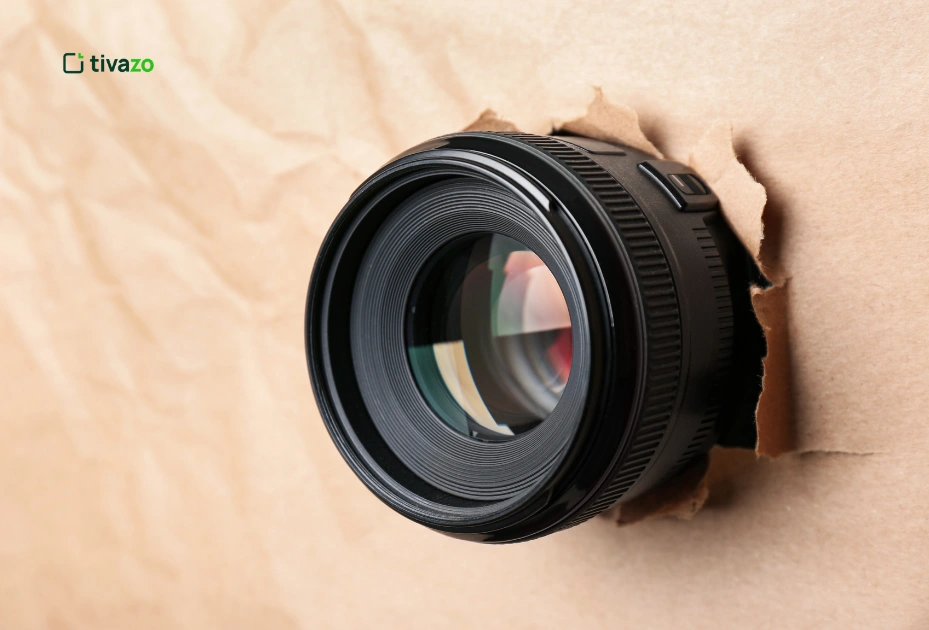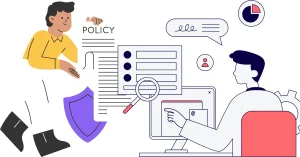In our digital world, privacy concerns are greater than ever before—especially in the workplace. Recently, a growing concern among employees is the existence of hidden cameras at workplace. Some employers are using hidden cameras for security reasons, to deter theft or for tracking productivity, and so on. But what about your rights as an employee? Is it legal for employers to covertly video record you without notifying you in advance?
If you’ve been wondering about the legality and drawbacks of hidden cameras in the workplace—or you simply want to know how your rights protect your privacy under U.S. laws—then this blog is for you! In this blog post, we will address everything you need to know about hidden cameras at work, including what hidden cameras are used for, employee rights, and what to do if you believe you are being covertly video recorded.
Key Takeaways:
- What Are Hidden Cameras at Work
- Are Hidden Cameras at Work Legal Without Notice
- Employee Privacy Rights in the Workplace
- How Employers Can Legally Use Hidden Cameras
- What Should Employees Do If They Suspect Hidden Cameras
What Are Hidden Cameras at Work?

Hidden cameras at work are surveillance devices disguised or concealed, intended to monitor activity without being noticed. When referring to a hidden or covert camera, this is different from a camera that is obviously seen in a visible position. A hidden camera is put into an unrecognizably disguised object, like a clock, a smoke detector, an air purifier, or even a USB charger.
There are several reasons why employers could use hidden cameras:
- Security – Employees vandalizing, stealing, or committing theft.
- Safety – Areas of the worksite that potentially could be harmful, to see if safety procedures are being followed.
- Employee Productivity – Watching employee behavior or just overall employee behavior in order to create efficiencies or better understand if employees are committing time-theft or loafing.
- Legal Liability – Have evidence to defend against a complaint for harassment or a workplace incident.
While an employer’s intent to install a hidden camera could be justified, it creates complex privacy and ethical issues regarding consent as discussed below.
Are Hidden Cameras at Work Legal Without Notice?

Perhaps the most frequently asked questions is: Are hidden cameras at work legal (without notice)? The short answer is complicated and depends on both federal and state laws.
Generally, in the U.S., employers enjoy broad rights in monitoring activities on their property. This right of surveillance includes use of hidden cameras at work. Many hidden cameras at work without employee knowledge might unwittingly cross the legal line related to reasonable expectations of privacy through surveillance.
Notification and Consent to Surveillance
Many states require notification to the employee that Surveillance is taking place, but this does not mean it is always a request for consent. However, employers must at a minimum also avoid lawsuits with transparency requirements. For example:
- In California, all employers must notify their employees about having cameras but have the ability to place cameras in public areas. However, they cannot place cameras in restrooms, lockers rooms or other places of privacy.
- Illinois has a stricter set of laws that requires written consent from the employee before monitoring by audio or video.
Exceptions and Prohibitions
There are some clear exceptions where hidden cameras are unlawful:
- Recording in places where people expect privacy, such as bathrooms and changing rooms, is unlawful in all instances.
- Many states prohibit the use of hidden cameras for potential audio recording without consent (wiiretap laws).
- In both private and workplace surveillance, such surveillance is unlawful in situations where it violates established labor laws or collectively bargained agreements.
Employers can be subject to significant penalties and court challenges for violating these types of rules, so it is critical for both employers and employees to understand their respective rights and obligations.
Employee Privacy Rights in the Workplace

You might be thinking that once you’re at work you have no rights with regards to privacy, and while that is not entirely accurate under U.S. laws, there are certain privacy rights of employees in regards to expectations of privacy while on company property.
Does Privacy Exist for Employees?
Employees have a reasonable expectation of privacy, but generally only in certain places and circumstances:
- Restrooms and locker rooms – cannot be surveilled.
- Private office or cubicle with a door – must itemized justification based upon the elements or criteria of the law, and must often require the consent of the employee.
- Use of personal devices – employers may monitor company devices, but cannot trespass on personal devices used in the workplace.
Impact on Employee Morale and Trust
The use of hidden cameras, particularly in a clandestine manner, can harm workplace morale and trust. Employees who feel like they are being watched in the presence of hidden cameras can incur stress, anxiety, and decreased job satisfaction- all of which can result in decreased productivity and employee retention.
Empowers need to ensure that security needs and employee privacy needs are balanced in order to maintain a healthy workplace environment.
How Employers Can Legally Use Hidden Cameras
Although the thought of using security camera systems in the workplace may seem invasive at first glance, there are lawful avenues for employers to implement surveillance without violating any legal or ethical rights.
Best Practices for Employers
- Transparency: Ensure employees know what the surveillance policy is and is included in your employee handbook or employee contract.
- Limited placement: Cameras should be placed only in public areas or common areas where privacy cannot be reasonably expected. Common areas usually means entrances, hallways or warehouses.
- Do not record audio: Unless state law allows otherwise, do not record private conversations.
- Purpose Limitation: Cameras should only be used for legitimate business purposes like security and compliance.
Utilizing best practices will minimize the potential for legal issues and help create a level of trust between the employer and their workforce.
What Should Employees Do If They Suspect Hidden Cameras?
If you suspect your employer has installed hidden cameras at work without your knowledge or in inappropriate areas,, here are some clues to look for:
Signs to Look For:
- Something funny or out of place, like a clock, smoke detector, or air purifier, is located in a strange location.
- Employees are called into meetings or given warning letters that include specific times without explanation.
- Wires and/or camera lenses that do not belong.
Steps to Take:

- Ask HR or management: Politely ask the HR or management to let you know whether your workplace employs any surveillance equipment, and if so, its purpose.
- Review company policies: Check to see whether your company’s employee handbook mentions any policies concerning surveillance, or any privacy statements.
- Document your concerns: Make notes of anything odd about your concerns, or any responses you receive.
- Seek legal advice: If, after taking the previous three steps, you still think you are facing a situation violating your privacy rights at work, you should contact an employment lawyer who is familiar with your state’s employee surveillance laws.
By taking these incremental steps, you will have more information for yourself regarding surveillance at work, more documentation about the situation, and some professional advice on how best to proceed.
Conclusion
The subject of hidden cameras at work is nuanced and complicated, particularly if employers have a “need” to protect certain interests, and if employees have rights to privacy. Certainly, a workplace could have a “need” for surveillance in order to protect the interests of the workplace, but employees also have the right to know when and where they are being monitored.
Essential to a discussion of surveillance and hidden cameras in the workplace is a historical understanding of employee rights under U.S. law, understanding how surveillance cameras can be legally deployed, and what you can do when you suspect you are being subject to cameras or covert surveillance at your workplace so you can take action to reclaim the right for a safe and respectful work environment.
You can stay informed, aware, alert, and be empowered to reach out to professional advice if you think your privacy is impacted.
FAQs:
Do hidden camera detectors really work?
Yes, hidden camera detectors do work- if they are used correctly. These devices search for frequencies or lens reflections given off by surveillance equipment. They may help to locate wired and wireless hidden cameras, with some success in finding devices that are actively transmitting. However, hidden camera detectors are not 100% effective either. They provide a helpful resource for detecting hidden surveillance in most office or commercial environments.
Do you have to post that you have security cameras?
In many states in the United States, employers are not required by law to place signage about security cameras in public workspaces. We strongly recommend, however, that employers provide this type of transparency to those being monitored. Some states (California, Connecticut) may even require written notification, especially if audio recording is involved. Posting notices about workplace surveillance is an important step in creating employee trust and avoiding legal issues.
Is it ethical for employers to monitor employees?
It depends on the method of monitoring. Because of transparency, it is acceptable and ethical for employers to monitor public areas to support legitimate safety and theft prevention measures. Secret surveillance is ethical until it erodes trust, which happens when it is not disclosed (or occurs in personal or private areas) or is done with unreasonable suspicion. Employers should always provide transparency, fairness, and create policies surrounding monitoring.
Can a hidden camera work without internet?
Yes, it is possible to use hidden cameras without internet. Many hidden cameras operate by storing video on either an SD Card or internally. Although having internet allows live streaming and remote viewing, it is not necessary in order to record. Even without an internet connection, hidden cameras will be able to record everything that is occurring in their view.
Do CCTV cameras have to be visible?
Most importantly, the law does not prescribe that CCTV cameras have to be visible at all times, especially in public or common areas of the workplace. However, recording in private spaces (like toilets or change rooms) is strictly illegal, regardless of whether the recording device is visible or hidden. Making cameras visible is generally regarded as more ethical, although some bosses opt not to do this, and generally there is seen to be greater transparency and deterrent effect when staff are clearly aware that they are being recorded.




